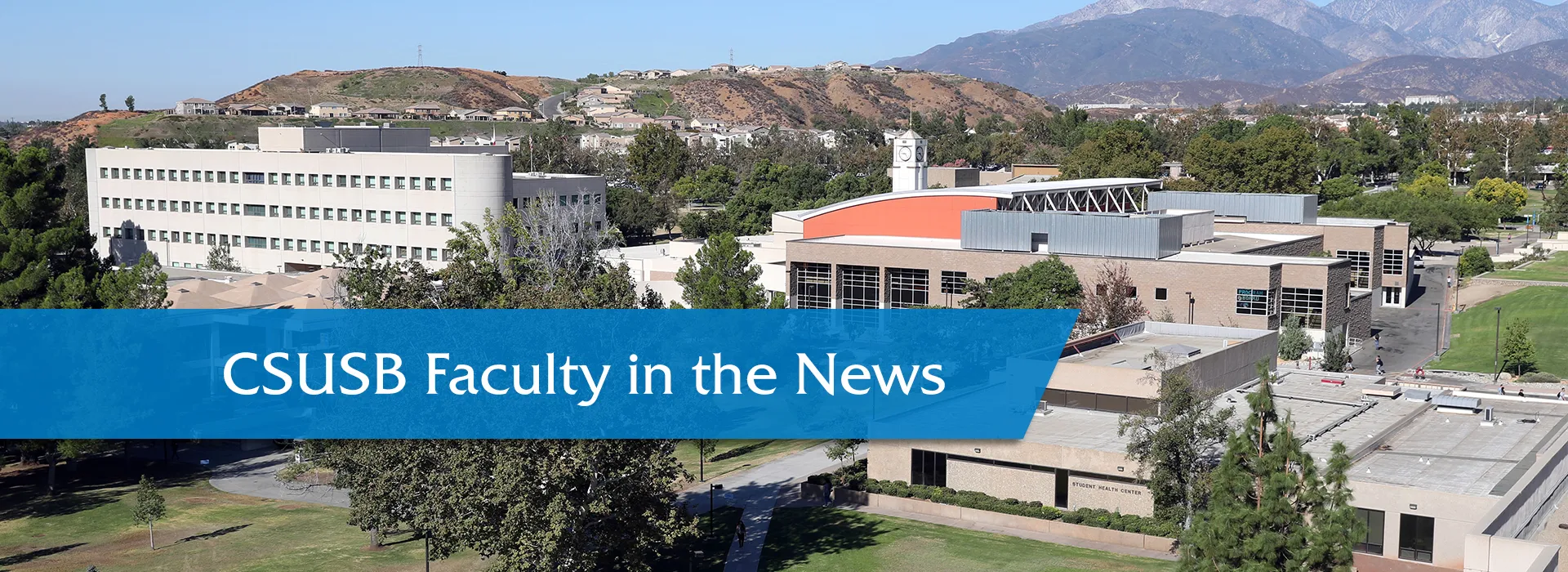NOTE: Faculty, if you are interviewed and quoted by news media, or if your work has been cited, and you have an online link to the article or video, please let us know. Contact us at news@csusb.edu.
Writer cites CSUSB hate crime report in column about Jussie Smollett caseArkansas Democrat GazetteFeb. 26, 2019 In an opinion column about the Jussie Smollett case, Phil Martin cited research by CSUSB’s Center for the Study of Hate and Extremism.He wrote: “Nobody formally tracks hate crime hoaxes, in part because hate crimes aren't uniformly reported. (Arkansas is one of five states without a hate crime statute; few law enforcement agencies in the state even bother to track them. Little Rock reported zero hate crimes in 2017.) Last May, the Center for the Study of Hate and Extremism at California State University, San Bernardino, released a report indicating 'massive under-reporting' of hate crimes, citing Department of Justice's figures that suggest since 2015, about 250,000 hate crimes have occurred annually and that they account for 3.7 percent of all violent crime. (In 2015 the DOJ estimated 208,000 hate crimes in the U.S., with a high percentage of victims not reporting.) “‘Conversely, our Center has found a very small number of approximately two dozen confirmed or suspected instances of false “hoaxes” in the last couple of years amidst thousands of police of hate crimes reported to police,’ the study's authors, center director Brian Levin and criminology professor John David Reitzel, write. ‘[O]f an estimated 21,000 hate crime cases between 2016 and 2018, fewer than 50 reports were found to be false. The center believes that less than one percent of all reported hate crimes are false.’” Read the complete article at “PHILIP MARTIN: Suspending disbelief.”
Difficulties in adding hate crime charges to a case discussed by CSUSB professorPostindustrialFeb. 24, 2019 Brian Levin, director of the Center for the Study of Hate and Extremism at CSUSB, was interviewed in an article that discussed the complications a hate crime hoax, such as the one allegedly involving Jussie Smollett, further complicates an already convoluted path to prosecuting hate crimes nationwide. Levin noted that prosecutors work in good faith to ensure a conviction. In the case of 14-year-old Syrian refugee Shaimaa Houri Zada, whose attack was captured on video, Levin said the charges of aggravated assault, harassment, and disorderly conduct are straightforward enough to lead to a conviction that would be appropriately punitive for the crime, without requiring the additional elements needed to prove the hateful or racist intention that go along with hate crime or ethnic intimidation charges. “Prosecutors are in a world where they not only seek truth, but they also charge crimes that they believe they can reasonably get a conviction on, not whether it’s moral or not to include it,” Levin said. “I’m sure morality plays a role, but at the end of the day, prosecutors sit down and say, ‘how is this going to advance the case?’” Read the complete article at “The state of hate: More ethnic intimidation, inconsistent reporting.”
These news clips and others may be found at In the Headlines” at inside.csusb.edu.
